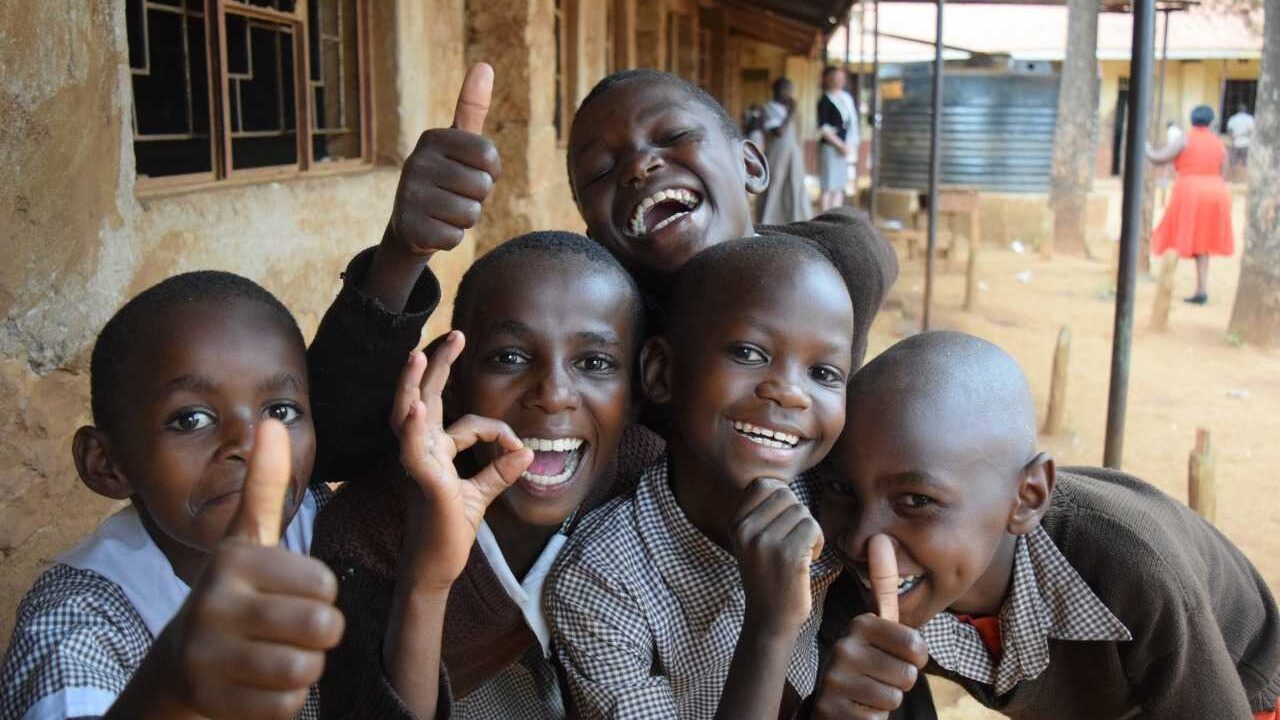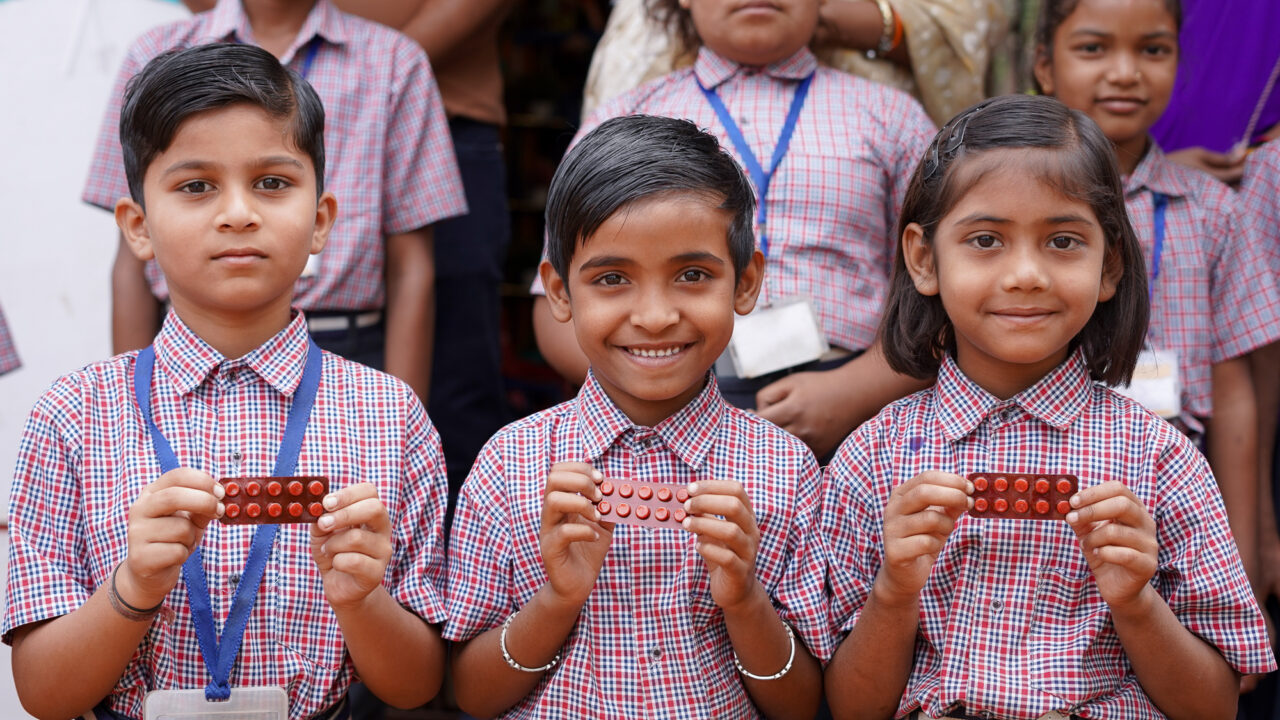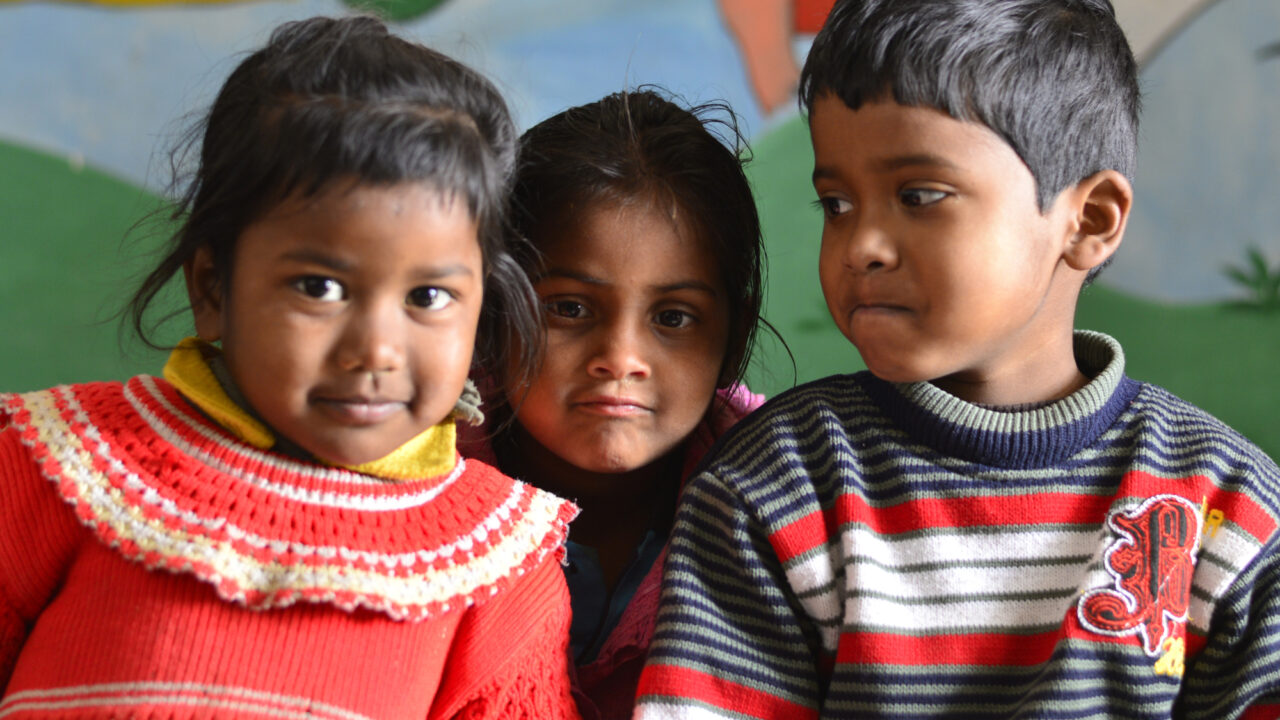When Chrispin Owaga assumed his role as Senior Manager of our Deworm the World Initiative in Kenya, he was fulfilling a lifelong aspiration.
Chrispin spent nearly half of his childhood in Nyalenda, one of the biggest slums of Kisumu, the third largest city in Kenya. His life there was not easy. Nyalenda lacked access to piped water, so Chrispin and his siblings would fetch water from whichever wells they could find. The lack of water and sanitation infrastructure made waterborne diseases common. During an outbreak of cholera, Chrispin fell ill, and while he made a full recovery, he distinctly remembers losing two neighbors to the disease.
In addition to the lack of safe water, Nyalenda’s location in Western Kenya makes it a breeding ground for the type of mosquitos that carry malaria. Chrispin’s family, unable to afford bed nets which offer some protection from the insects, suffered frequently from malaria.
“The problems we faced were not unique to us as a family, they cut across the board for all our neighbors, and that’s what we grew up with,” he explains.
In these early years, Chrispin dreamt of becoming a doctor. He worked hard to achieve the necessary grades, but there were times when his family struggled to come up with school fees, leading to a two year period when he was forced to drop out. “I know a lot of people who dropped out after class eight and that was the end of it, but I continued on, hoping for something better,” says Chrispin.
The adverse circumstances surrounding his schooling led Chrispin to fall short of the grades needed for medical school. However, intent on pursuing a career that would allow him to address some of the issues he and his community experienced, he went on to study biomedical science and technology.
“Growing up, my aspiration and my vision was to find the best way to come out of this situation, and ensure that as I got older, I was able to have some impact,” reflects Chrispin.
He began his career as a research scientist at the Kenya Medical Research Institute (KEMRI) where he conducted research for one of the first community-directed interventions addressing soil-transmitted helminths (STH), intestinal worms that our Deworm the World Initiative addresses. From there he went to work on a variety of health programs, ranging from malaria and HIV, to maternal health and safe water systems.
However, Chrispin began to feel frustrated with the limited impact he was having as a researcher, as it lacked the direct application and sense of urgency that he sought.
“I was in research for some time, and it became monotonous. We kept spewing out data and research articles, but I wanted to be part of the research application more than I wanted to be part of the research itself,” he explains.
Chrispin’s search for a role that would allow him to be closer to the application of research brought him to our Deworm the World Initiative. He was immediately impressed by the scale and impact of our intervention, as well as the evidence-based and cost-effective approach of Evidence Action.
Not entirely by chance, Chrispin’s current role has come full circle with the start of his career – not only does he work to tackle STH infection, his first focus as a research scientist, but he does so in close partnership with KEMRI, his first employer, to help measure the impact of deworming on worm infection levels in Kenya.
“The scale at which we are helping deworm is incredible. In Kenya alone, we support the government to annually provide treatment in twenty-seven counties to over six million children, and around the globe the governments we support treatment of around 280 million children each year,” states Chrispin.
When asked if his childhood self would be proud of the work he does for Evidence Action, Chrispin’s answer was emphatic.
“Yes, absolutely. It gives me so much joy to be able to see how many children we have helped treat, knowing the impact that deworming has on nutrition, health, and cognitive development, it is so fulfilling. So, I’m in a good place in terms of where I want to be and what I want to achieve.”



